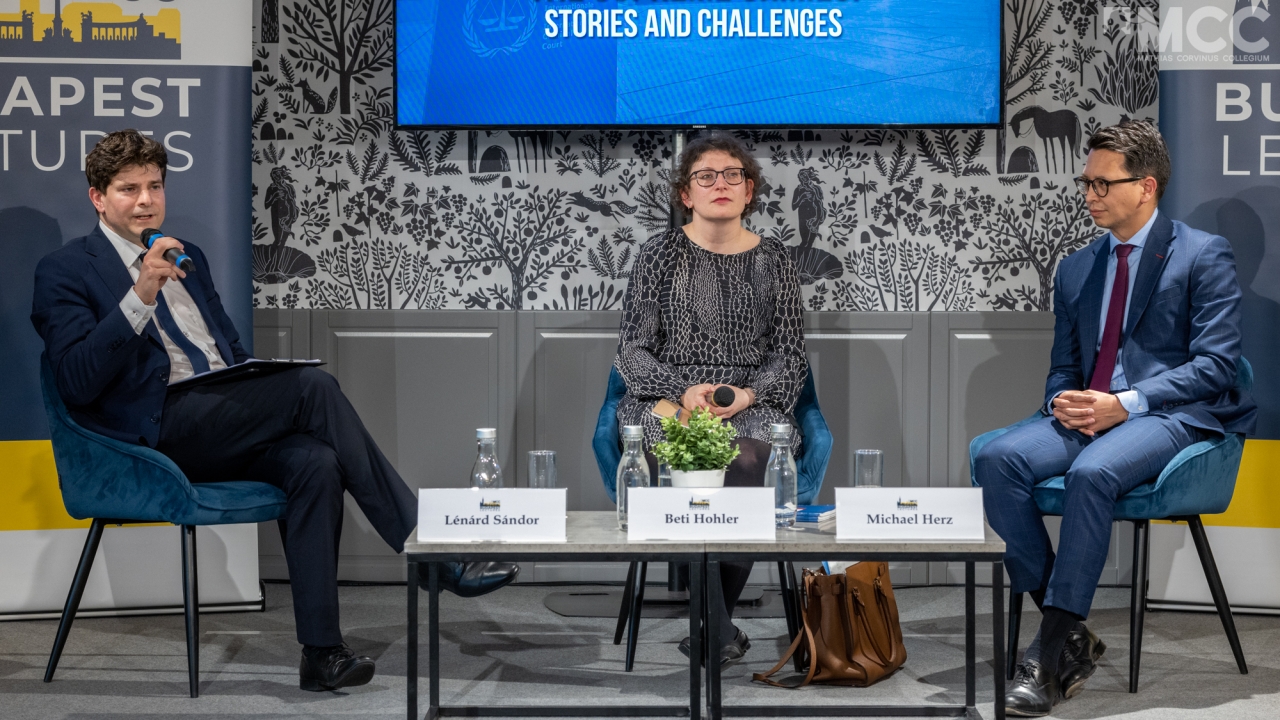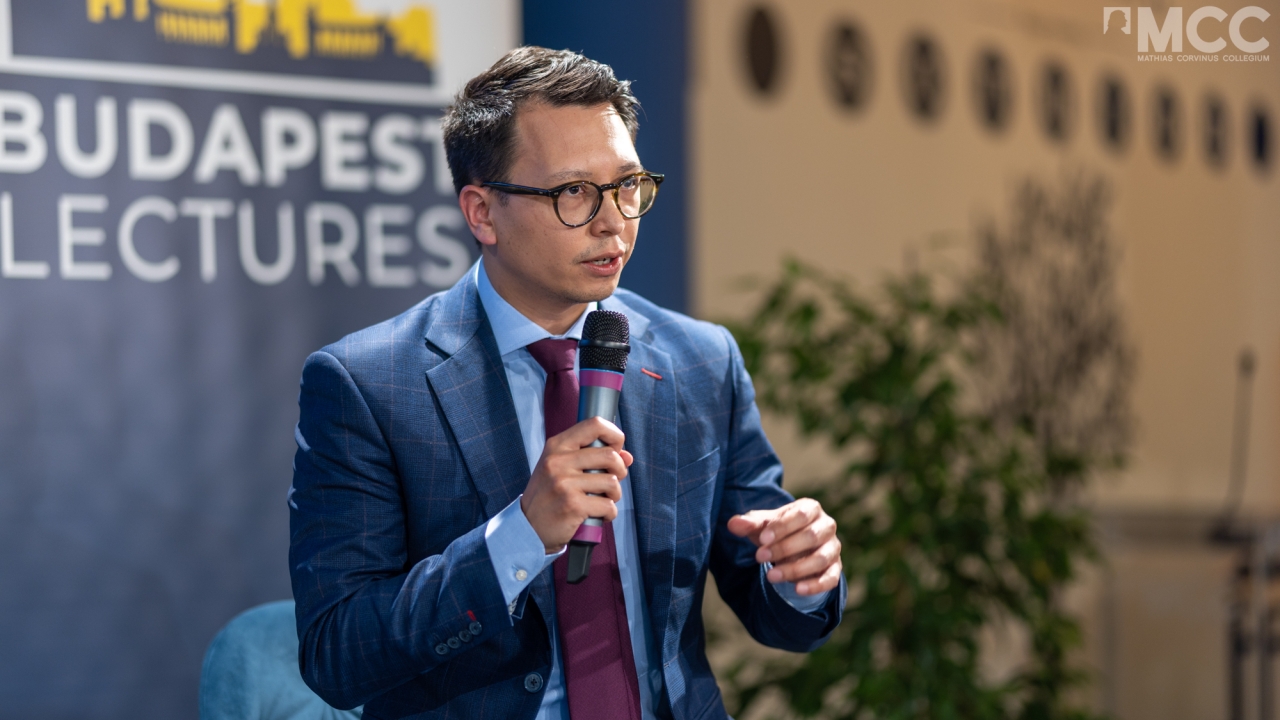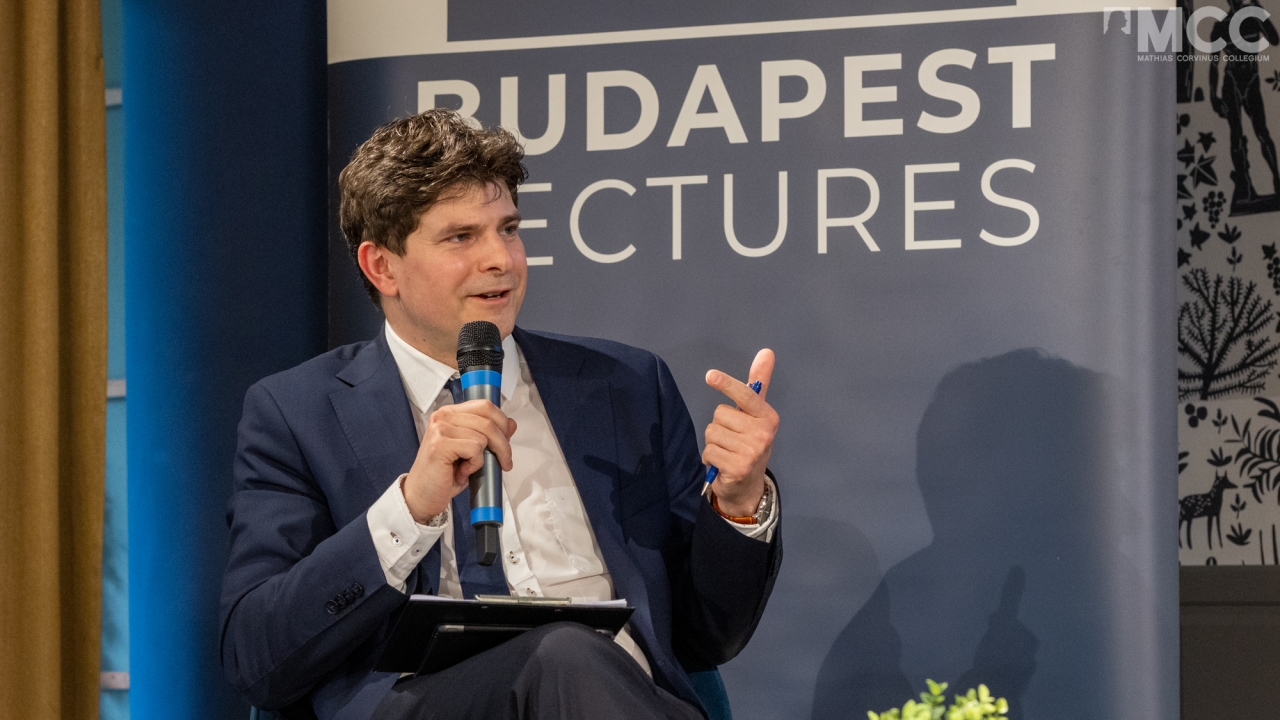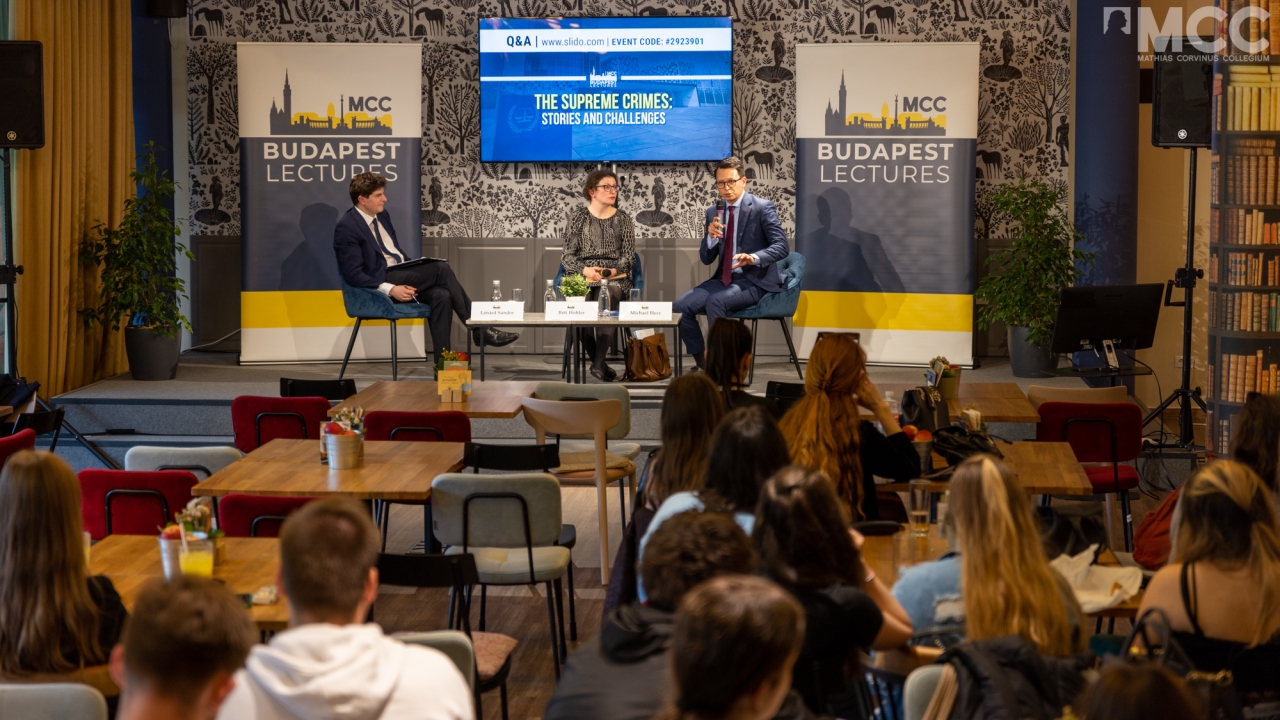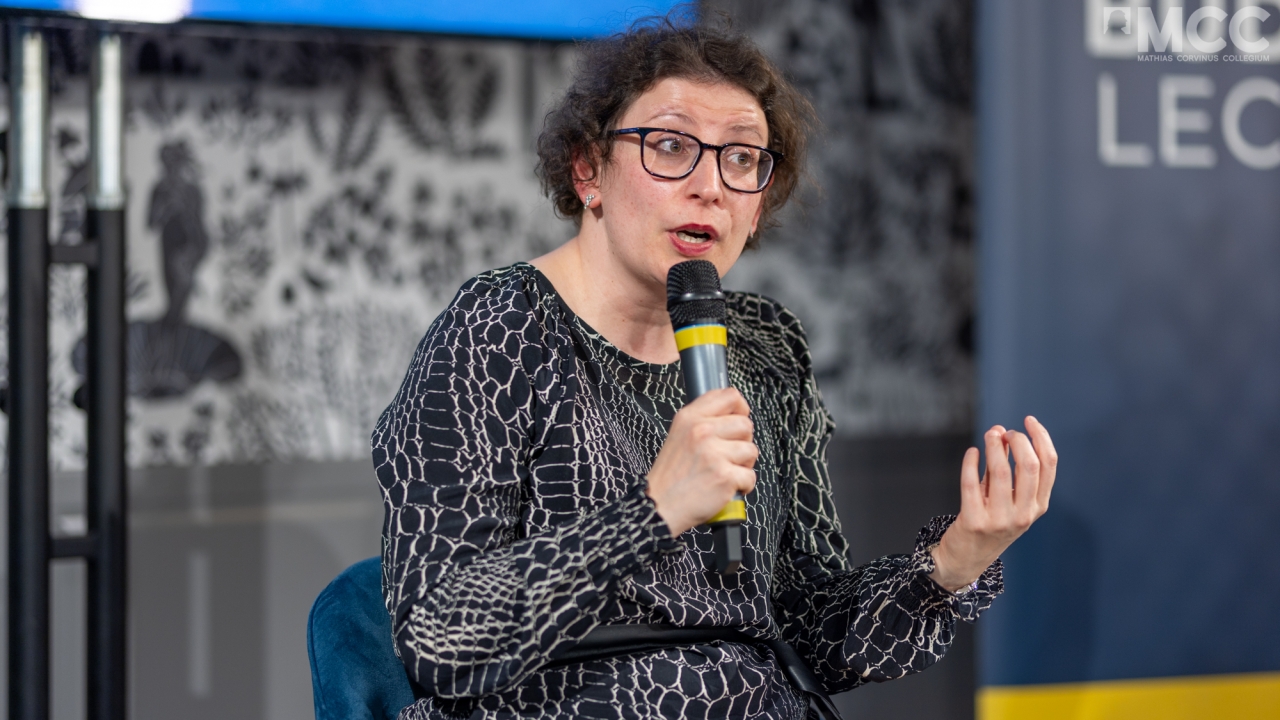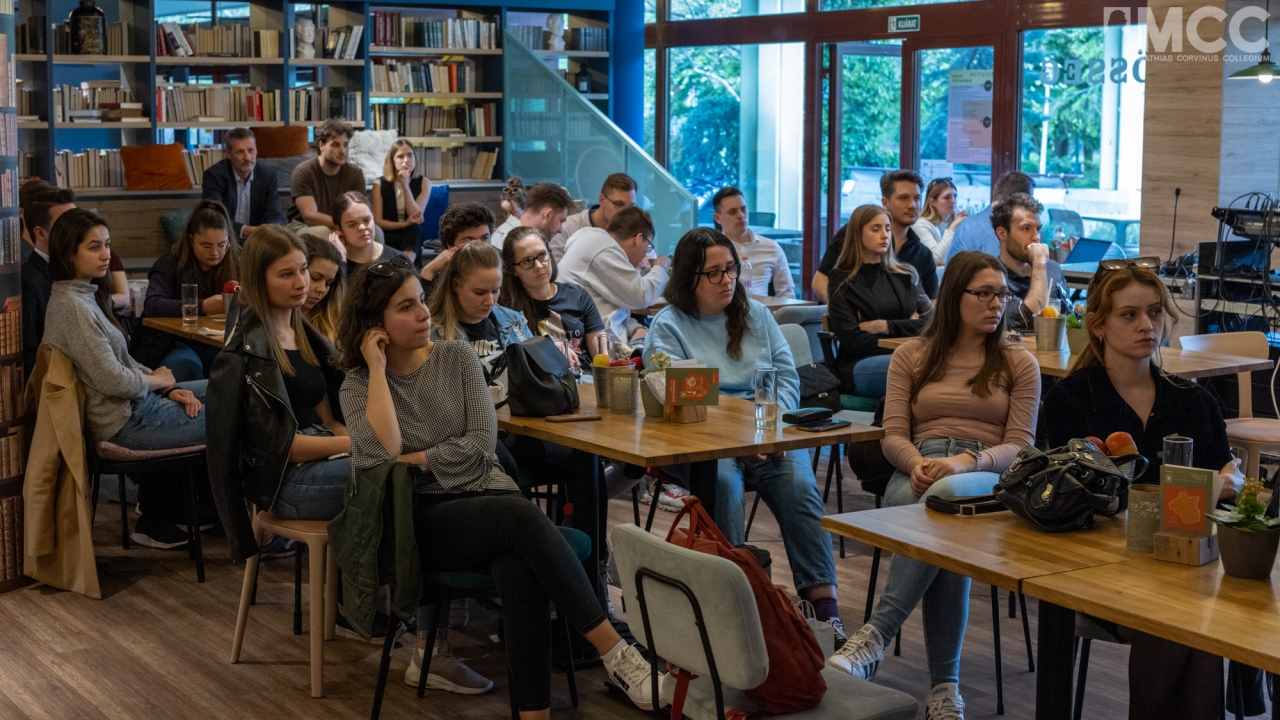Reading time: 2 minutes
International law has come a long way in laying down the fundamental concepts of the “Supreme Crimes” as well as the institutional framework of accountability but the need for its future development ultimately rests on the consensus and political commitment of States Parties. Beti Hohler, trial lawyer for the ICC’s Office of the Prosecutor and Michael Herz, legal officer in the Office of Public Counsel for the Defence at the ICC talked about the “Supreme Crimes” in the MCC Budapest Lecture series with Lénárd Sándor, Head of the Center for International Law at the MCC.
The Budapest Lecture discussion sought to explore a quite young, challenging and unfortunately timely and relevant field of public international law that is international criminal law. The much-criticized phenomenon of the “culture of impunity” has long mirrored the well-known maxim of Cicero: “inter arma enim silent lēgēs” that is “in times of war the law falls silent”. The experts explained the unique historical development of the “Supreme Crimes” emphasizing the role of the Nuremberg and Tokyo Charters in the evolution of this area of the law. They also shared some of the stories and myths that accompanied the drafting and development of these international crimes. They agreed that the 1990s gave new momentum to this field as the Cold War ended and two major conflicts broke out in Yugoslavia and Ruanda. The establishment of the standing International Criminal Court was a result of this momentum that forged a wide consensus among States to address the “culture of impunity”. The experts spoke about the achievements and shortcomings of the past operation of the Court, the importance of the principle of complementarity and the interactions with domestic criminal courts and other international tribunals. They agreed that many challenges are ahead including the accountability for the new methods of warfare or the regulation of “ecocide” and many of these challenges can only be addressed through the consensus and commitments of States Parties.
